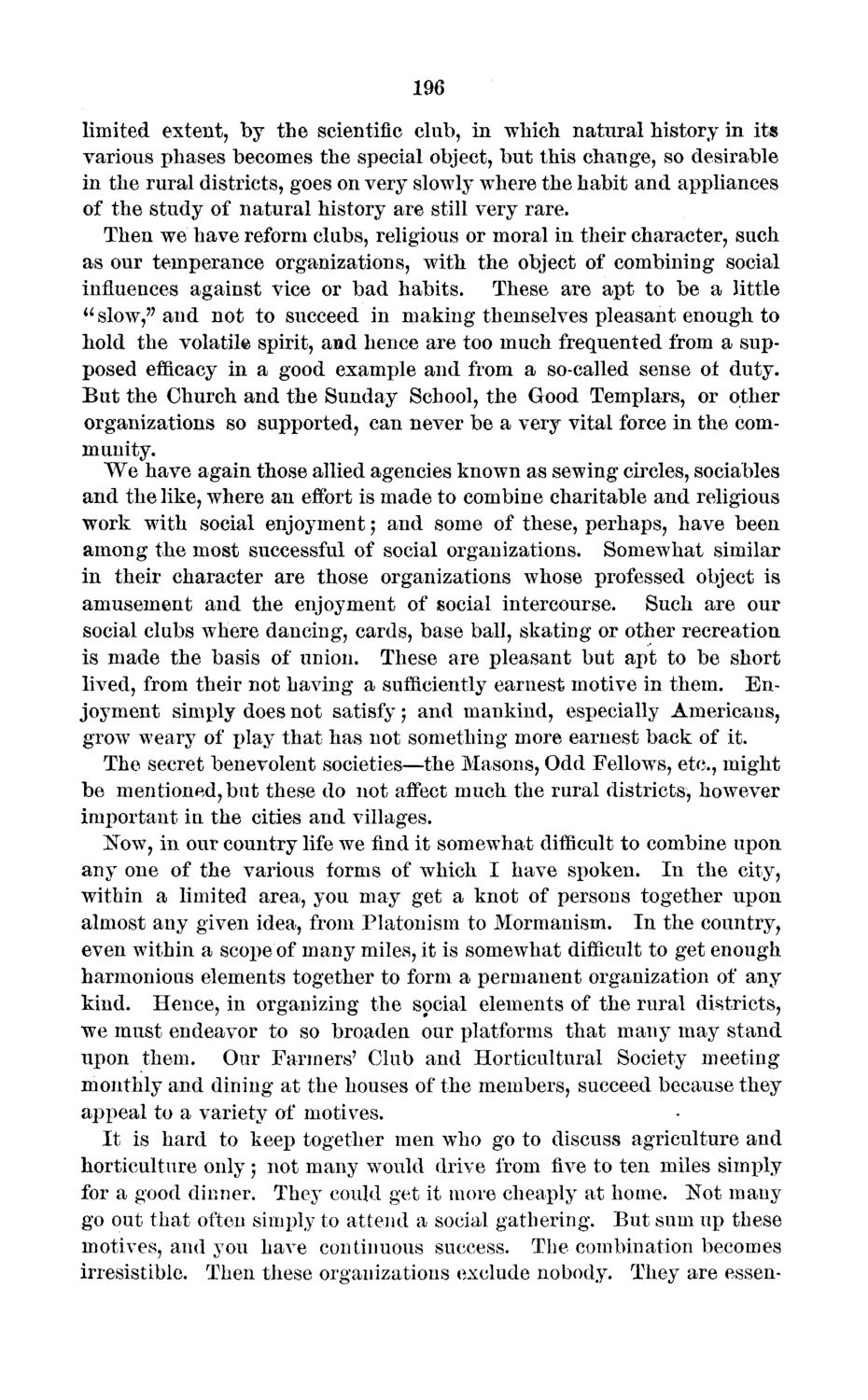| |
| |
Caption: Board of Trustees Minutes - 1873
This is a reduced-resolution page image for fast online browsing.

EXTRACTED TEXT FROM PAGE:
196 limited extent, by the scientific club, in which natural history in its various phases becomes the special object, but this change, so desirable in the rural districts, goes on very slowly where the habit and appliances of the study of natural history are still very rare. Then we have reform clubs, religious or moral in their character, such as our temperance organizations, with the object of combining social influences against vice or bad habits. These are apt to be a little " slow,'7 and not to succeed in making themselves pleasant enough to hold the volatile spirit, and hence are too much frequented from a supposed efficacy in a good example and from a so-called sense of duty. But the Church and the Sunday School, the Good Templars, or other organizations so supported, can never be a very vital force in the community. We have again those allied agencies known as sewing circles, sociables and the like, where an effort is made to combine charitable and religious work with social enjoyment5 and some of these, perhaps, have been among the most successful of social organizations. Somewhat similar in their character are those organizations whose professed object is amusement and the enjoyment of social intercourse. Such are our social clubs where dancing, cards, base ball, skating or other recreation is made the basis of union. These are pleasant but apt to be short lived, from their not having a sufficiently earnest motive in them. Enjoyment simply does not satisfy; and mankind, especially Americans, grow weary of play that has not something more earnest back of it. The secret benevolent societies—the Masons, Odd Fellows, etc., might be mentioned, but these do not affect much the rural districts, however important in the cities and villages. Now, in our country life we find it somewhat difficult to combine upon any one of the various forms of which I have spoken. In the city, within a limited area, you may get a knot of persons together upon almost any given idea, from Platonism to Mormanism. In the country, even within a scope of many miles, it is somewhat difficult to get enough harmonious elements together to form a permanent organization of any kind. Hence, in organizing the social elements of the rural districts, we must endeavor to so broaden our platforms that many may stand upon them. Our Fanners' Club and Horticultural Society meeting monthly and dining at the houses of the members, succeed because they appeal to a variety of motives. I t is hard to keep together men who go to discuss agriculture and horticulture only ; not many would drive from five to ten miles simply for a good dinner. They could get it more cheaply at home. Not many go out that often simply to attend a social gathering. But sum up these motives, and you have continuous success. The combination becomes irresistible. Then these organizations exclude nobody. They are essen-
| |